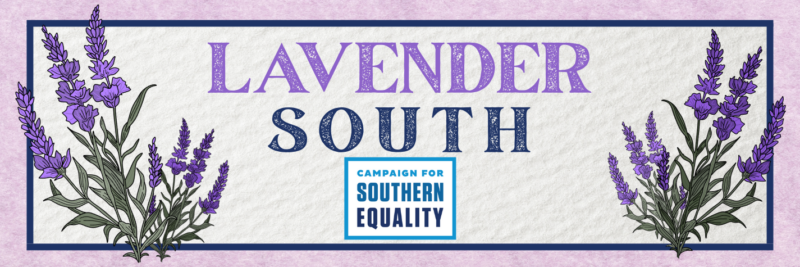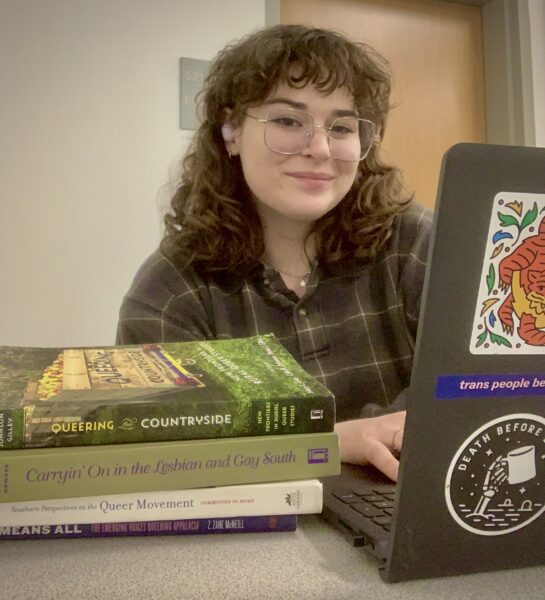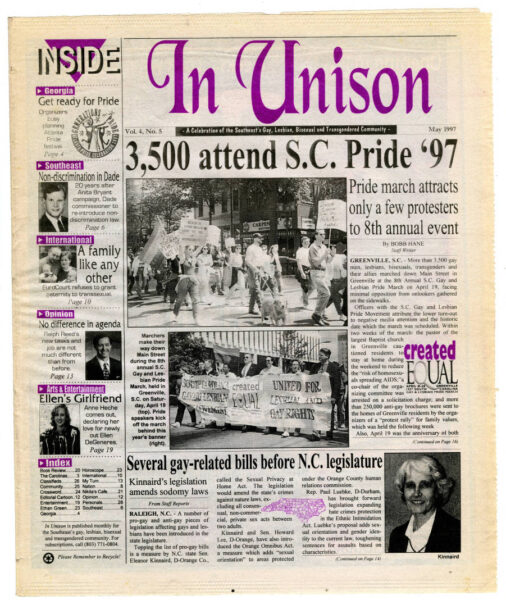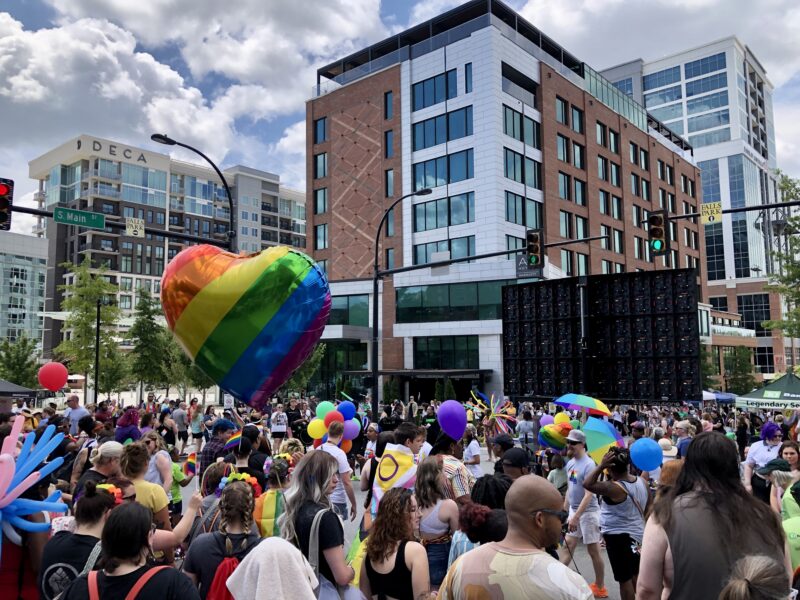
In times when queer histories, presents, and futures are targets of censorship, knowledge stands out as a critical tool of resistance.
When I was in college, I decided to pursue Gender and Sexuality Studies as my second major. As a queer South Carolinian, I knew I wanted to do something around LGBTQ+ activism in the U.S. South as a career path, mostly because I have a huge problem with how the South is often presented as a space queer people must escape from. I’m guessing many of us have heard the infamous, “If you don’t like it (t)here, then leave!” declaration. It took me a while to put into words why phrases like that bother me so much (aside from being annoying), and it wasn’t until I dug deeper into my own research on the history of queer activism in my hometown of Greenville, South Carolina that it finally, really clicked. No matter how much others, including members of federal, state, and local governing bodies, try to say that the South is a conservative, white, traditionalist monolith, queer Southern histories are fact–they happened. And researching, defending, loving and advocating for the preservation of these histories is a means of liberation.

The best part about all this is that you don’t have to be an academic to get involved. In fact, speaking as someone who is now pursuing an M.A. in Women’s, Gender, and Sexuality Studies, we absolutely need to push back against the notion that research, particularly archival work, is some mystical thing confined to the halls of academia. It isn’t, and that idea is actively harmful to producing and protecting knowledge. In my research, the most valuable sources have almost always been community-produced and community-focused materials, like independently-published books, newspapers, zines, oral histories, and other forms of art. Y’all, these are our archives! When so many of us have been told that queerness is something to be censored, buried, and/or destroyed, learning about our histories can not only feel deeply freeing; it can give us ideas about how to respond to current threats.
Take, for example, the South Carolina Pride Movement’s organization of (what my research indicates to be) the first recorded Pride march held in Greenville, South Carolina back in 1997. (These early pride events were organized by an organization called The Gay and Lesbian Pride Movement (GLPM). That organization has now split to form both SC Pride and The Harriet Hancock Center, two organizations organizing pride and community events in South Carolina today.) While the march was moved from the usual site, Columbia, S.C., in part because of ongoing construction at the Statehouse, the move to Greenville was also a historic act of protest – one that we would do well to remember. In 1996, Greenville County Council passed its infamous “Family Values” or “Anti-Gay” resolution (note: the resolution has no official title, so its title really just depends on who you ask), which declared, in part, “lifestyles advocated by the gay community should not be endorsed by government policy makers, because they are incompatible with the standards to which this community subscribes.” This resolution was so controversial that the 1996 Olympic Torch had to be shrouded when passing through county lines Essentially, the measure that attempted to define which kinds of “lifestyles” should belong in Greenville County. Sound familiar? In response, Pride organizers scheduled a full weekend of events, including the Saturday march that amassed over 2,000 participants, in the center of Downtown Greenville – even as counter-protestors jammed the locks of affirming businesses and distributed hundreds of thousands anti-gay materials around town. Now more than ever, it is crucial to remember that Pride is a form of protest.

This is just one example of how taking a deep dive into queer histories – especially the local histories of places we may hold strong connections to – can help reframe our thinking about dealing with repressive forces. Though history is often divided into static categories of “past” and “present,” the issues queer communities have faced in the past– including state censorship, surveillance, and violence – are deeply relevant to our present and future work.
Importantly, the sources I just referenced are, at the time of this writing, fully accessible to the public. Though I have institutional access to other sources with my university credentials, I’m a big believer in free, accessible research materials. By far, my favorite source I used in this research is In Unison, a magazine published out of Columbia, SC from 1994 to 1998 that is currently housed by the University of South Carolina. Other U.S. South-centric community-produced newspapers, like Georgia’s Southern Voice and North Carolina’s Q Notes and The Front Page, offer a treasure trove of local queer histories to explore. Additionally, resources such as Invisible Histories, state-centric collections like the Georgia LGBTQ History Project, and publicly accessible archival collections housed at universities throughout the South present opportunities to engage with diverse histories and to learn how we can begin to build more inclusive archives that tell the stories of our presents and futures.
I specifically find oral histories to be one of the most rich and compelling resources out there. From international projects like the Digital Transgender Archive to local projects like the LGBTQ Columbia History Initiative, simply telling our stories is one of the strongest weapons we have in the fight that has come before and lies in front of us. Picking up your phone, recording a story, and storing it somewhere is an archive. Taking photos is an archive. Making art is an archive. Preserving your protest signs, buttons, and flyers is an archive. Save them, broadcast them, love them. To move any type of way, it is required to look back, forward, and sideways to our community members. This we can do together.


